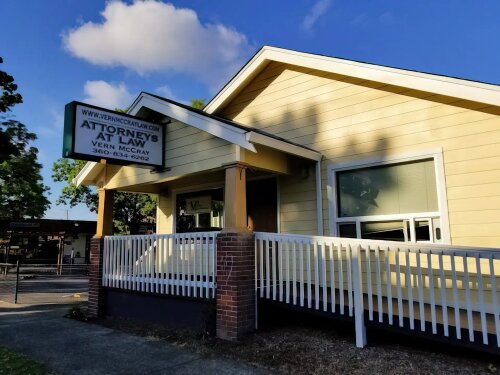Best Private Client Lawyers in Washington
Share your needs with us, get contacted by law firms.
Free. Takes 2 min.
Or refine your search by selecting a city:
List of the best lawyers in Washington, United States
United States Private Client Legal Articles
Browse our 1 legal article about Private Client in United States written by expert lawyers.
- Estate Tax 2026 Outlook: United States Exemption Sunset Prep
- Federal estate and gift tax exemption is historically high (over $13 million per person in 2024) but is scheduled to drop by roughly half after December 31, 2025. The IRS "use it or lose it" rules let you lock in the current higher exemption with lifetime gifts; if you wait... Read more →
About Private Client Law in Washington, United States
Private client law in Washington, United States, encompasses a broad range of legal matters that primarily relate to individuals, families, and their personal assets. This field includes estate planning, trusts, probate, tax planning, asset protection, guardianships, elder law, and powers of attorney. The purpose of private client legal work is to help individuals manage, protect, and transfer wealth in accordance with their wishes and in line with Washington state laws. Washington's legal framework provides unique options and requirements, especially regarding community property, probate procedures, and taxation.
Why You May Need a Lawyer
There are several common situations in which hiring a private client lawyer in Washington may be beneficial or necessary. These include:
- Drafting or updating a will or trust to ensure your assets are distributed according to your wishes
- Navigating the probate process after a family member passes away
- Establishing powers of attorney or health care directives for incapacity planning
- Minimizing estate and inheritance taxes under federal and Washington laws
- Protecting wealth from creditors, litigation, or expensive long-term care
- Appointing guardians for minor children or adults with disabilities
- Handling contested wills or disputes among beneficiaries
- Managing family assets such as business succession or real estate transfer
A private client lawyer can offer guidance tailored to your circumstances and help ensure compliance with Washington's specific legal requirements.
Local Laws Overview
Washington law contains several provisions that are significant for private client legal matters:
- Washington is a community property state, which affects how property is owned and divided between spouses, both during life and at death
- The state of Washington imposes an estate tax with an exemption amount that is different from the federal estate tax exemption
- Washington employs a straightforward yet supervised probate process to facilitate the transfer of assets after death
- Advance directives and durable powers of attorney are recognized and have specific statutory requirements
- Non-probate methods such as beneficiary designations, transfer-on-death deeds, and trusts are commonly used to bypass probate
- Certain rights for surviving spouses and registered domestic partners are protected under Washington law
Understanding these local laws is crucial for effective estate planning and asset protection.
Frequently Asked Questions
What is estate planning and why is it important in Washington?
Estate planning involves preparing legal documents to manage and distribute your property and personal affairs upon death or incapacity. In Washington, proper estate planning can help reduce taxes, avoid probate, ensure minor children are cared for, and provide clarity for loved ones.
What is the probate process in Washington?
Probate is the court-supervised process of validating a will and distributing a decedent’s assets. In Washington, probate is generally efficient compared to other states, but many people still plan to avoid it for privacy or convenience.
Does Washington have its own estate tax?
Yes, Washington has a state estate tax. The exemption amount is lower than the federal estate tax exemption, so estates above this threshold may owe state taxes even when there is no federal estate tax due.
How does community property affect estate planning?
Because Washington is a community property state, assets acquired during a marriage or domestic partnership are generally owned equally. This affects how property is distributed at death or divorce and should be addressed in planning documents.
What is a durable power of attorney?
A durable power of attorney is a legal document that allows someone to make financial or medical decisions on your behalf if you become incapacitated. Washington law recognizes these documents and prescribes rules for their creation.
How can a trust help me in Washington?
Trusts can help manage assets during your lifetime, avoid probate, provide privacy, and potentially reduce estate taxes. Revocable living trusts are commonly used in Washington.
Are there unique protections for spouses and domestic partners?
Yes, Washington law grants certain rights to surviving spouses and registered domestic partners, regardless of what a will or trust says. These include elective share rights and homestead protections.
Can I make changes to my will or trust?
Yes, you can update or amend your will or trust at any time, provided you are mentally capable. Regular updates are recommended after major life events or legal changes.
What is an advance healthcare directive?
An advance healthcare directive, also known as a living will, allows you to state your preferences for medical treatment if you are unable to communicate. Washington law provides forms and guidance for these documents.
What happens if I die without a will in Washington?
If you die without a will, Washington’s intestacy laws determine how your assets are distributed. Generally, your closest relatives (spouse, children, parents) will inherit according to state law, which may not align with your wishes.
Additional Resources
For further information about private client matters in Washington, consider the following resources and organizations:
- Washington State Bar Association (WSBA)
- Washington Courts - Probate and Guardianship Information
- King County Law Library or your local county law library
- Washington State Department of Revenue - Estate Tax Information
- AARP Washington - Estate Planning Resources
- Northwest Justice Project - Free legal help for eligible individuals
Next Steps
If you need legal assistance with a private client matter in Washington, consider taking the following steps:
- Make a list of your assets, debts, and any existing legal documents like wills or trusts
- Identify your goals, such as who should inherit your property, who should act on your behalf if you are unable, and any special concerns
- Schedule a consultation with a qualified private client lawyer licensed in Washington for personalized advice
- Bring copies of all relevant documents and be prepared to discuss your family structure, financial situation, and any previous planning
- Continue to update your legal documents as your circumstances or the law changes
Taking these steps can help protect your interests, simplify matters for your loved ones, and ensure your wishes are carried out according to Washington law.
Lawzana helps you find the best lawyers and law firms in Washington through a curated and pre-screened list of qualified legal professionals. Our platform offers rankings and detailed profiles of attorneys and law firms, allowing you to compare based on practice areas, including Private Client, experience, and client feedback.
Each profile includes a description of the firm's areas of practice, client reviews, team members and partners, year of establishment, spoken languages, office locations, contact information, social media presence, and any published articles or resources. Most firms on our platform speak English and are experienced in both local and international legal matters.
Get a quote from top-rated law firms in Washington, United States — quickly, securely, and without unnecessary hassle.
Disclaimer:
The information provided on this page is for general informational purposes only and does not constitute legal advice. While we strive to ensure the accuracy and relevance of the content, legal information may change over time, and interpretations of the law can vary. You should always consult with a qualified legal professional for advice specific to your situation.
We disclaim all liability for actions taken or not taken based on the content of this page. If you believe any information is incorrect or outdated, please contact us, and we will review and update it where appropriate.
Browse private client law firms by service in Washington, United States
Washington, United States Attorneys in related practice areas.
Browse private client law firms by city in Washington
Refine your search by selecting a city.









